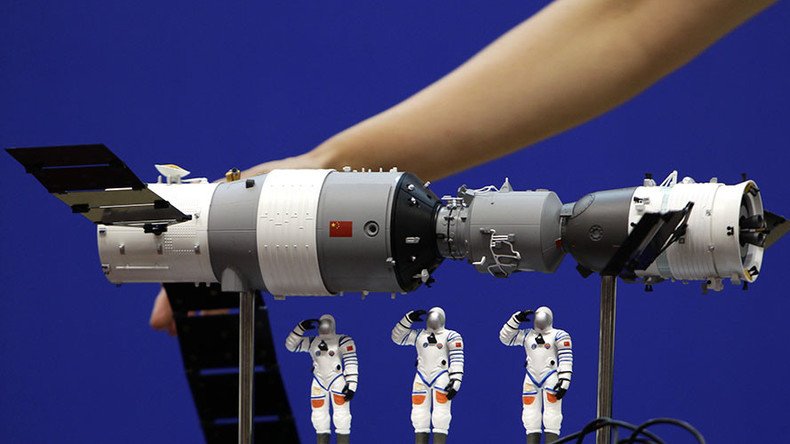China's Tiangong-1 space station is falling – officials

China’s maiden space station, Tiangong-1, has ended its operations and will fall to Earth sometime in late 2017, Chinese officials have confirmed in a press conference Wednesday.
Tiangong-1, which was launched in September 2011 and whose name means “Heavenly Palace” in Chinese, ceased broadcasting in March of this year, effectively ending its operational capacity. Wu Ping, deputy director of China's Manned Space Engineering office, told reporters that most of the station will likely disintegrate in the atmosphere and pose little threat to people on the ground.
“Based on our calculation and analysis, most parts of the space lab will burn up during falling,” she told China's state-run Xinhua news agency.
Wu’s statement seemed to confirm widespread suspicions that China had lost control of Tiangong-1, since if it was still functioning properly operators would be able to bring it down at a specific time and place or burn it up in the atmosphere. As it stands, the orbital station is being closely monitored by Chinese authorities to see when and where it will fall.
Over the course of its five-year lifespan, Tiangong-1 conducted observations of various natural phenomena on Earth, including Australian bush fires and the Yuyao floods in the eastern Zhejiang province. It also pioneered the Chinese space program, performing the first successful Chinese docking in space, with Shenzhou-8 in November 2011. This was followed by Shenzhou-9 in June 2012 and Shenzho u-10 in June 2013, both of which were both manned by three “taikonauts” (Chinese astronauts). Its replacement, Tiangong-2, was launched on Thursday, and is due to receive its first manned mission from Shenzhou-11 in mid-to-late October.
The Chinese space program runs independently of Russian and American efforts on the International Space Station (ISS), as taikonauts are prohibited from entering the ISS due to American security concerns.












